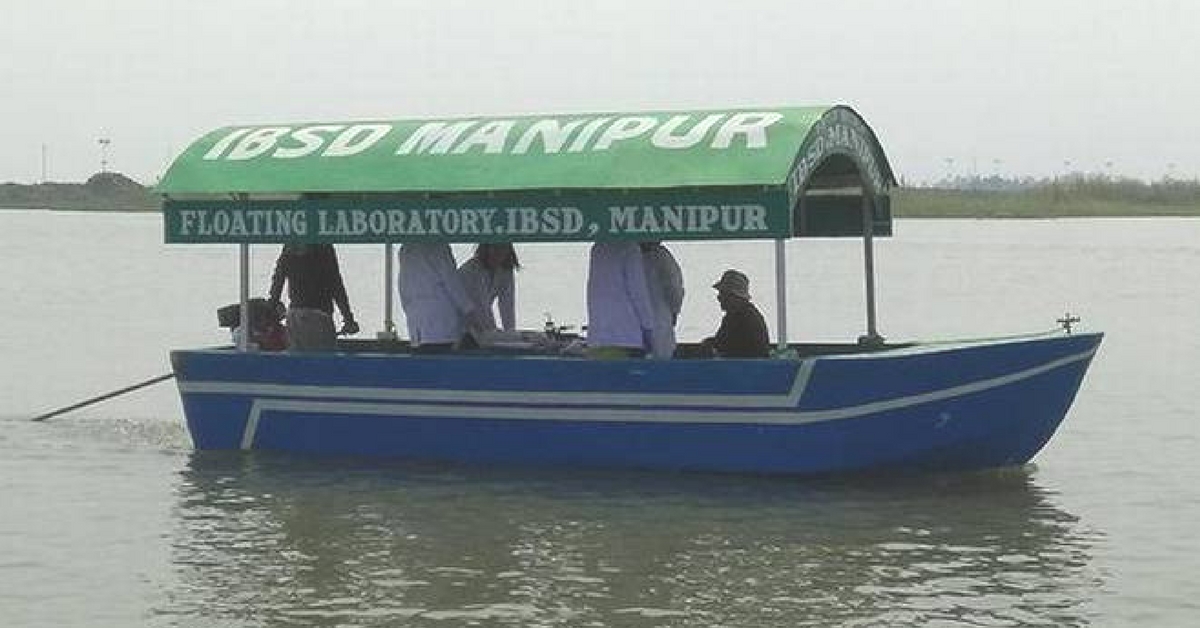Why wait until pollution levels in a lake or river reach unhealthy proportions? Can we do anything to prevent it?
As a part of a major initiative to monitor the health of water bodies in the Northeast, the Institute of Bioresources and Sustainable Development (IBSD), Manipur, has set up a floating laboratory on Loktak Lake near Imphal to monitor pollution levels, reports The Indian Express.
The Department of Biotechnology is leading this initiative, and there is a possibility that it will spread across the Northeast.
After the Loktak Lake, the DBT is looking at the Brahmaputra river, which will witness ‘B4’ (Brahmaputra Biodiversity and Biology Boats) boats floating on it. In the shape of a large barge, the publication reports that such a boat will consist of the necessary equipment including cold storage facilities to store samples. Other satellite boats are expected to assist the B4s in collecting samples. An initial investment of Rs 50 crore was announced for the project by the DBT.
“The idea was to float a large boat which will serve as a place to conduct experiments and research on the Brahmaputra and address problems that affect the aquatic life. What we see on Loktak is to check water quality and the excessive growth of biomass that can affect the health of the lake,” Dinabandhu Sahoo, the director of ISBD, told the publication.

“The idea was to float a large boat that will serve as a place to conduct experiments and research on the Brahmaputra and address problems that affect the aquatic life. What we see on Loktak is to check water quality and the excessive growth of biomass that can affect the health of the lake,” said DBT senior advisor T Madhan Mohan to the publication.
On the boat itself, researchers test for temperature, pH levels (measuring acidity), dissolved oxygen and conductivity. The team plans to test for turbidity later.
Read also: Constructed By The Americans During WW-II, This Road Could Transform The Northeast
Without adequate checks on pollution levels, these water bodies which often act as catchment areas for rainwater, offer a dangerous outcome for the millions who depend on these rivers or lakes for sustenance.
Back at the institute, researchers test for other metrics like “biochemical oxygen demand, chemical oxygen demand, chloride and levels of phosphate and nitrogen.” Data generated from these field trips and studies could, according to the DBT, affect State policy on the matter.
Read also: This Bengaluru Man Fought Alone For 5 Years To Save This Lake. He Is Finally Winning!
“Families consume this water for bathing, cooking their food, and growing their vegetables, so it is important to make sure they know what quality of water they are using,” says one researcher. This is precisely why such an exercise is critical.
Like this story? Or have something to share? Write to us: contact@thebetterindia.com, or connect with us on Facebook and Twitter.
NEW: Click here to get positive news on WhatsApp!
If you found our stories insightful, informative, or even just enjoyable, we invite you to consider making a voluntary payment to support the work we do at The Better India. Your contribution helps us continue producing quality content that educates, inspires, and drives positive change.
Choose one of the payment options below for your contribution-
By paying for the stories you value, you directly contribute to sustaining our efforts focused on making a difference in the world. Together, let's ensure that impactful stories continue to be told and shared, enriching lives and communities alike.
Thank you for your support. Here are some frequently asked questions you might find helpful to know why you are contributing?
